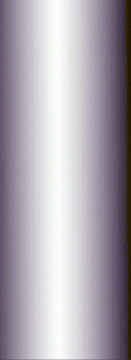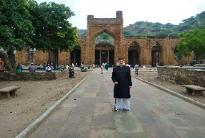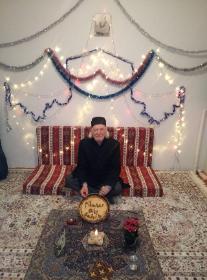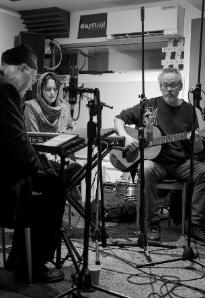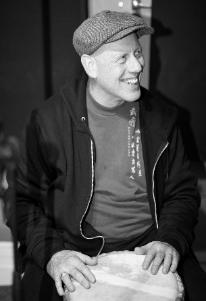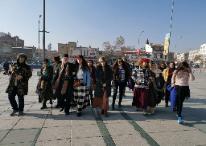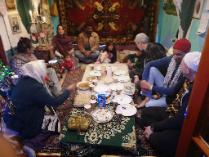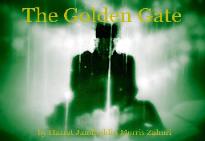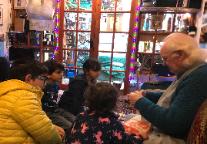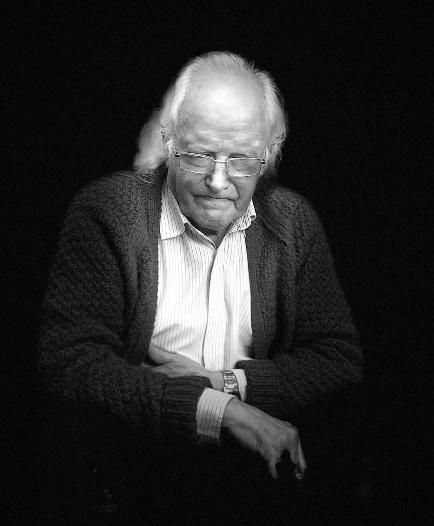
New Years Message 2019
Photo Caption
Use this space to briefly
describe your photo and the
context in which it was taken.
Use this space to briefly
describe your photo and the
context in which it was taken.
Photo Caption
Use this space to briefly
describe your photo and the
context in which it was taken.
Use this space to briefly
describe your photo and the
context in which it was taken.
2020 is knocking at the door. Soon it will enter our lives and become the ever
changing present reality. It will bring good things and also difficulties and
problems. How should we expect differently? If we rely on outward
circumstance these changes may at times sweep us of our feet.
If however we learn to rely on the light that illuminates the inner life then the
currents of life may pass by, or at least will leave us calm and placid.
Worry is no answer but neither is heedlessness. Worry brings about the very
thing we fear, it colours our thoughts and gives them a negative hue. Worry
and pessimism are two of our main enemies. They bring about a miserable
and unhappy life. When we experience life like that the enemy inside says - “I
told you so!” This increases our worries and our negativity.
The opposite of that is to be heedless. To be heedless is to ignore news, to
ignore warnings, to ignore what we have learned and to live for current
pleasures only. We know we will one day die - all of us. Heedlessness
chooses to ignore the real meaning of that and to live only for the pleasures of
the present. “Eat, drink and be merry for tomorrow we die” is it’s motto, yet the
present life has a purpose beyond transient enjoyment. It is not a game. In a
game someone wins and someone loses but it is not like that in life. The one
who serves Allah best is a winner but not at the cost of another losing.
Then what is the answer if both heedlessness and worry, bring bad results?
It is to walk the narrow path between these two. Neither be heedless nor be a
worrier, instead have in view personal purification and the improvement of
society through that means. The improvement of society by external means
alone is a pipe dream. To change society for the better we must change
ourselves internally.
Hafiz said that if we see difficulties on the horizon then get drunk. He did not
mean hide your head in the sand and pretend they are not there. His meaning
of getting drunk was to lose oneself in the love of God to such an extent that
thought itself became silent. When thought is silent then those difficulties do
not approach, since they are engendered by thought in the first place.
Control of thought means the non acceptance of negative thought and the
embracing of positive thought. Positive thoughts are thoughts of love, charity,
kindness, calmness, peace, generosity, purity, self effacement, tolerance,
wisdom, serenity, hope, faith and so on. Of all of these, thought of real love is
the best.
But this does not mean one should always be spiritually drunk. Zahurmian
quoted an English poet who said “absent thyself from felicity awhile”. There
are times in the life of a Sufi when problems come. His response is to refer
the problem back to the one who sent it, to Allah. The problem may be a test
to see the state of the heart, will it remember God or not?
There is a divine spark, it is our consciousness: it is not affected by being
high or low, it still shines. When it is high we feel good, when it sinks down it
makes us feel low. Both are necessary. When it goes low it is working to
purify our Nafs al amarah. Our lower self. This is hard but necessary work.
When we wish for relief from this we try to go up. The means of this are
prayer, zikr, dhikr, and meditation. These lift our consciousness up. We feel
relief. We feel better. ‘After hardship comes ease’.
As a matter of fact this is only one manifestation of the divinity within. To reach
the other levels is not so easy. In all these things it is God’s gift that enables
us to become aware of Him. Effort is required but the gift of making that effort
is with God. As Zahurmian put it we must have the will to will the Divine Will.
One effort we must make is ensure our life is productive and useful. The holy
book says; ‘believe and do good’. Doing good may be taken to engage in
prayer and so on but the Quran also talks about ‘neighbourly needs”. It is an
obligation Allah places on us. Our neighbours are not only people living next
us physically, they are people we engage with as part of our everyday life.
If we need money to live we work. To do our work well, for the sake of Allah is
important. Just as it is important to choose work as much as we can that will
be acceptable to Allah. The work of a parent is real work of course as is
housework etc. If we do not need to work for money to live by then we should
still aim to work, but our work is to help others in a different way. Do not live
just for passing pleasure. Real pleasure comes from the satisfaction of work
well done. Work which we hope will please Allah and be for Him alone. The
source of real pleasure is eternal, it is the pleasure of divinity.
The pursuit of happiness through pleasure is a will-o-the whisp. Those
pleasures are not real, they are transient of course, but worse they lead the
unfortunate one deeper and deeper into the mire of misery. Drug use for
example or pornography or other addictions like gambling or alcohol.
Real pleasure follows real work and it leads one upwards, like climbing a
mountain it may be hard at the time but the view is well worth it. In fact even
those well earned pleasures are not the full answer. Real joy comes from
using that as a springboard. The deeper divine pleasure of the divinity is real
pleasure and it is beyond any comparison if we enter in to it.
Now let us reflect on the year that has passed.
First we must say that throughout the year we managed by Allah’s
grace to maintain the regular zikr every Sunday. There were folk from Shiraz
and Kirman with us each time. Yahya from Isfahan also joined regularly. In
Shiraz Maryam and her mother, Shahla, were nearly always present along
with Marjan, the two Ghazals, Roya, Maryam Isfahani and Anna.
Mehboobi was another regular attender. In Kirman Jameela and Rabia were
always with us. Jeyran and her sister Shirin were there and Shirin would
recite from memory sura Nur or Sura Kursi. Nazanin, of the dresses, was
always with us and led us in durud, Yasi was nearly always part of it. Nargis
who I call Nur was present always either from Kirman or with me in Konya or
India. Shima from Sirjan usually joined us. From Jordan Luqman often joined
in. In England Bahar was usually on line and her son and daughter read Qul
most weeks. Bahar’s husband Karim was often present. He became a murid.
In Zahuri Manzil Mikail and Hussam along with Riaz were often present.
Arshad also came very often. Ali and Asif joined in and sometimes Abbas too.
Hussain joined in when he could get transport and sometimes brought his
grandfather.
As well as Quran reading and zikr at the end there would often be reading
from the ‘Secret of Secrets’ by hz Abdul Qadir al Jillani both the English and
Farsi translations. The English translation is by sheikh Tosun Bayrak.
In addition we had a masnevi group on Wednesday evenings. This was set
up for English murids and focussed on the English translation of Nicholson.
As time went by the murids from Iran also wanted to participate so we had
English and the original Farsi. Nur has memorised the Ney Nama and she
recites it so as to distinguish when the ney is speaking and when the author.
Maryam Teimuri Moghadam recites the sura ar Rehman to commence
proceedings. There is discussion on various points.
Beyond this there were two more group sessions. One was on Fridays. It was
on-line zikr and not people meeting physically. The other was a Farsi masnevi
group run by Maryam. I would join this at the end to answer questions.
All of these groups ran nearly every week during the whole year. Sometimes I
was in Konya at other times in Ajmer or elsewhere in India. What a
marvellous invention of Allah that allows us to meet like this. Thanks to Him.
I was in Konya for many weeks during the year. By the kindness of Mevlana
we were able to purchase and furnish a flat. My sincere thanks to Nur for all
she did for this especially in furnishing it. Also to Hallit for his tireless help
with all the paperwork involved, visiting offices for utilities etc.
During that time Nur and I were able to visit Mevlana nearly every day. My sight
and balance are still a little affected by the stroke I had and Nur was able to
help me get around Konya. She also cooked the most delicious food and
helped with every aspect of daily life. We visited the home of Nuri baba where
Muharram Effendi held masnevi group. At my request Nur was allowed to
recite beautifully Ney Nama in Farsi. It was much appreciated. The shrine of
Mevlana was hidden by boarding for some months whilst restoration work
went on. At one and the same time restoration work was under way at the
shrine of Shems Tabrizi where we did manage to get in to see a shrine
underground. It was quite a long way down and the steps were very deep.
We of course met Abdullah and his family. These were not always happy
occasions. Abdullah’s father who was very elderly and had been in poor
health for a long time, passed away. We attended his burial and later visited
the family, offering Quran recitation at Abdullah and Hallit’s request.
A second occasion of sadness took place when Abdullah’s sister was finally
overcome by cancer. We attended the funeral and visited afterwards.
During this period in Konya Nur began to learn the Ney. It is a notoriously
difficult instrument but she was fortunate to find an excellent tutor in Mehmet
who taught her without remuneration. She mastered the basics with great
speed.
We also visited on occasions the sema of the mevlevis which took place in
the grounds of Mevlana’s shrine. We visited the shrine of the mother of
Mevlana in Karaman. Nur took some wonderful pictures, When she was in
Kirman she had an exhibition that was a great success. Some of her pictures
were exhibited in the Araf hotel near Mevlana.
During the urs of Khwaja Saheb I returned to England to conduct it in
Southampton. As well as Riaz, Ali, Abbas and Humaira and children, Mikail,
Husam, Hussain, Arshad, Baby, and Akbar, Asma and her husband and
children, Tahira and Zulfikar and Farhan joined us at various points and of
course many murids from Iran were on line as well as Luqman from Jordan.
The reading of the holy Quran was completed by a joint effort. Farhana was
ever present and working hard in the background, reading Qur’an and
keeping up all her prayers and helping to organise the readings. The
responsibility of reading the special Fatiha of the order was given her by
Zahurmian and she carries out diligently on the 5th or 6th of each month in
the Muslim calendar. There was a poetry reading too in which she read from
the Urdu poems of Nawob Saheb And Zahurmian. As much as possible we
followed the timetable of Ajmer. This was helped by communication on line
from Nur and Maryam.The final closure was a very busy time with many
people present. There was also speeches, Quran recitals, durud and Zikr in a
local mosque on 5th of Rajab. We decorated the mosque for the occasion. It
was well attended by people in Southampton and on line.
At the same time Nur Ilkhanipour and Maryam Teimuri were of course in the
actual Urs in Ajmer. Nur found particularly illuminating the inner teaching of
Khawaja Saheb along with the powerful spiritual flow of energy from the great
saint.
Maryam says:
Khawja Saheb’s love drew his lovers back to his Urs again in the month
Rajab. Programs were held beautifully; there was an inauguration parade
along with raising the flag on the top of the entrance; nights of listening to
Qawali from 10 pm till 4am. There were two Qul days (closing ceremonies)
and a poetry symposium. These made the Urs days and nights outwardly.
Some people stay there to also participate in Hazrat Ali’s birthday on 13th
Rajab. Finally everyone gets back home with gifts and blessings from Khawja
Saheb to spread to people in different parts of the world the love experienced.
Yasi visited us in England in the summer which was very nice. With her, Ali,
Asif and Farhana accompanied me to Manchester to visit Bahar and her
family. Whilst there we went to a mosque for Juma. The Zahuri Manzil in
Manchester is really starting to take shape thanks to the hard work of Bahar
and her husband.
I also went to Ajmer during the autumn and Nur accompanied me. We were
joined by Maryam Isfahani for some time. In Ajmer of course we met Inam
Saheb and his sisters and wife. It was the first time I had been there in
Muharram. The Qwaali stopped for ten days and was replaced by chanted
stories of Karbala and the martyrdom of the grandson of the holy prophet. The
crowds were enormous. Every day Meher and Amina read various verses
beautifully in the khanqah and on occasions Nur and I were able to visit them.
There were well attended events on Chilla including Langar.
I visited some other places too accompanied by Nur. A week in Jaipur and
some time in both Delhi and Agra. In the latter of course we saw the famous
Taj Mahal, now very shining and clean. We went also to the shrine of Salam
Chishti in Fatehpur Sikri. There some qwaals who spoke English played for
us and one told of his travels to England.
In Delhi we undertook ziarat, visiting Qutub Saheb, Hz Nizamuddin Awlia and
Hz Amir Khusro. In old Delhi we visited Shah Wali Ullah, Hz Sarmad and Hz
Huree Baree Saheb, and Hz Kalim Ullah.
We also went to Hz Maqdum Suhrewady saheb’s shrine in Mehrauli and also
visited old friends Faiz and Aftab from college days who lived nearby. We were
given a meal.
I did have some medical problem at the end of our visit and spent 5 days in
an excellent hospital where I was given first rate treatment. Nur and Maryam
Isfahani were marvellous in looking after me at that time. Nur had the difficult
experience of finding me collapsed on the bathroom floor. I had a visit from
Inam’s sister and wife in the hospital.
We should mention some other things. First Sina a friend of Nazanin became
a murid. Secondly both Maryam and Jeyran announced their engagements.
Mubarak.
Now we come to the very recent Urs of Mevlana Jalaluddin Rumi in Konya. I
travelled there from England with Abbas and Ali. Of course by the kindness of
Mevlana this year we had a flat ready for accommodating murids. It was not
big enough that everyone could stay there all the time but on the first and last
night of their visit most did. After the first few days Ali and Abbas went to stay in
a hotel to make space for the ladies from Iran. Several of us visited the main
Sema in the cultural centre. Nermin managed to get us free guest tickets.
Later the ladies from Iran arrived. There was ziarat to the shrines of Shems,
Mevlana, Nuri Baba, Ali Baba, Bey Hekim Effendi, Hz Kazeruni, Sadreuddin
Konevi, Atash Baz Veli, Tavus Baba and Cemal Ali Dede. This was in a
specially hired bus.
We visited the Dergah of Nuri Baba for several nights participating in the zikr
and music there. This year it was noticeable that people from Iran were in
greater numbers than ever. The event was conducted by Ali Baba’s successor
Muharram Baba.
We also had zikr in Zahuri Manzil in Konya. This is the name we gave to our
flat. These events were attended by the murids and broadcast on the internet.
Due to visa restriction Nur was not able to join us physically but was with us
on line most of the time. Yasi took us all to a restaurant for food on one
occasion. It must also be mentioned that Sherin insisted on providing us all
with etliekmek on the last night. For that reason I like to call her sometimes
Etty. It was delicious, thanks to her for that.
The loving blessings of Mevlana illuminated the occasion for all of us.
I am aware I may have left out many things if I omitted something dear to you,
or somehow didn’t include your name please forgive me. The blessings of
Allah were so great it is too much to number.
Poetry
During the stay in Ajmer many poems came into my mind thanks to the the
inspiration of Khwaja Saheb no doubt. When I was back in England at the
urgent request of the murids, especially Hussam, we decided at very short
notice to make a CD of some of them. Mikail provided the guitar and Hussam
the drumming. Riaz played the Daff and Farhana played the Indian hand bell.
Bahar and her three children came all the way from Manchester. They arrived
as we began the recording and you can hear her delightful voice in the
background on some tracks. She is also working on presenting all the poems
in a book form. It will inshallah be the second volume she has produced.
Here are a few examples not on the CD.
28
Now let us turn to trust: not trust in people or in technology,
But trust that there is a higher nature that can make us free.
Trust there is communication from the higher mind and heart,
But know also the impulses of the lower nature play their part.
29
Between his bestial, indolent or destructive lower selfhood,
And the heavenly or divine inspirations for a higher good,
Stands man, sometimes following one, sometimes another,
His humanity depends on distinguishing one from the other.
30
People think that trust in divinity means no responsibility,
It’s all in the power of the divine, so effort is not necessary.
Trust in the Divine does not mean this, not by any measure,
Man’s lower nature makes him a ‘believer’, but only in leisure.
31
Trust in God means and implies making a clear discrimination,
Between low impulse and the flow of divine, higher, inspiration.
But how to tell the difference? Zahurmian gives us this clue,
Be patient when an idea is coming, wait, see if it will continue.
32
If it is an impulse from the lower nature it will fade eventually,
But pure inspiration from on high has about it a permanency.
Khwaja had so many dreams of the holy Prophet before, finally,
Telling a youth of seventeen that his successor he would be.
33
So trust in God is in distinguishing inspiration’s source,
And then with surety following the higher path of course.
If you do that with consistency you will be on the way,
And your own higher nature you will simply not betray.
Books
There is much work in progress. Yasi has been working on a translation into
Farsi of Zahurmian’s trilogy, The Psalm of Love, The Psalm of Light, and The
Psalm of Life.
Anna from Shiraz has been busy translating The Culture of the Sufis into
Farsi. Both now need to be checked and edited by other persons who know
both languages well.
Maryam Teimuri from Shiraz has been working on an enormous project. To
make a book in Farsi that gives brief accounts of the very many saints
associated with that city. Nur visited Shiraz for a week to photograph the many
shrines and said she had never been so busy in her life. The result in the
form of photographs is spectacular. Marjan has been active in providing maps
for the location of shrines. Maryam’s persistent and inspired work it is hoped
will provide an insight into the spiritual history of Shiraz that has never really
been done before. The work is with editors. In addition to the she is working
with me on an English language edition that may form part of a series on holy
cities being brought out by Jamil Chishti a publisher in England.
So now we must try summarise an eventful year. It may seem fanciful or even
grandiose to use the phrase ‘the reconstruction of humanity’ as Zahurmian
does, but I find it most appropriate. Yes the events of the world go on their
merry and often self destructive course and this a handful of people with no
obvious power cannot affect surely. If we give regard to outward things this is
true enough but there is an inner dimension we must also take into account.
Mevlana, Khawaja Saheb, Hazrat Abdul Qadir al Jillani and indeed even the
holy Prophet himself and Hazrat Ali were but single voices in the wilderness
but they changed and continue to change the nature of man’s perception and
actions.
We are but a few but we are serious about changing ourself for the better. In
doing so we are changing those around us, invisibly and intangibly yes, but
really. Not politically or socially but spiritually. Real enlightenment spreads
this way, not by rallies or protests but within the hearts of a few folk.
Our aim is to make ourselves better people. Only better petter people seeking
better living can really contribute to a better future for mankind. Neither
religious dogmatism nor social theory nor political ambition can bring this
about. Loving hearts can and by Allahs grace will.
I hope and pray Allah will make this a better year for you. That He will continue
to inspire you to reach a higher level of development. I also hope and pray that
He will give you material benefits too; that difficulties may be solved and
aspiration rewarded.
At all events May Allah’s blessings be with you, each and every one. Amin
